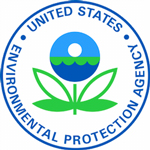The largest mis-use of Renewable Identification Numbers (RINS) since the inception of the Renewable Fuel Standard (RFS) has been settled this week. The U.S. EPA and the U.S. Department of Justice have ordered Chemoil Corporation to retire 65 million fuel credits to resolve violations. When factoring in the current market value of the credits, combined with an additional 7.7 million RINS previously retired by Chemoil in lieu of the lawsuit, the company will pay a $27 million civil penalties as part of the settlement.
 RINS are credits created when a company, such as a biofuel producer, produces or imports renewable fuel. Under the RFS, they can be traded or sold to refiners and fuel importers or exporters as a means of complying with the program. The lawsuit alleged that Chemoil exported at least 48.5 million gallons of biodiesel from 2011 to 2013 and did not retire the more than 72 million associated RINS. The RFS requires RINS to be retired when the fuel is exported because it is no longer available for blending into the U.S. fuel supply, and consequently, cannot be used to meet the Renewable Volume Obligations (RVOs) established each year under the program. When RINS are not retired, as in this case, it artificially inflates the volume of renewable fuel available for blending in the U.S. along with the number of RINS available to meet RVOs.
RINS are credits created when a company, such as a biofuel producer, produces or imports renewable fuel. Under the RFS, they can be traded or sold to refiners and fuel importers or exporters as a means of complying with the program. The lawsuit alleged that Chemoil exported at least 48.5 million gallons of biodiesel from 2011 to 2013 and did not retire the more than 72 million associated RINS. The RFS requires RINS to be retired when the fuel is exported because it is no longer available for blending into the U.S. fuel supply, and consequently, cannot be used to meet the Renewable Volume Obligations (RVOs) established each year under the program. When RINS are not retired, as in this case, it artificially inflates the volume of renewable fuel available for blending in the U.S. along with the number of RINS available to meet RVOs.
“This settlement delivers on the greenhouse gas emissions reduction goals that Congress envisioned for the Renewable Fuel Standard,” said Cynthia Giles, assistant administrator for EPA’s Office of Enforcement and Compliance Assurance. “It’s vital that companies retire renewable fuel credits when exporting fuel abroad. Upholding this requirement is a key way EPA is working to maintain program integrity and a level playing field for companies that follow the law.”
Assistant Attorney for the Environment and Natural Resources Division, John C. Cruden, said of the ruling, “Congress adopted the Renewable Fuel Standards program to achieve significant greenhouse gas emissions reductions, reduce the nation’s dependence on foreign oil, and grow our domestic renewable energy industry. By ensuring a level playing field within the industry through vigorous compliance monitoring and enforcement, we help ensure that these important Congressional goals are met.”
EPA said it discovered the alleged violations as a result of tips from RFS program participants.

